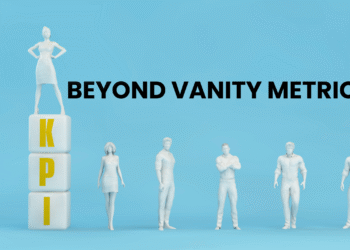“Content is king, but engagement is queen, and the lady rules the house,” proclaimed Mari Smith, one of social media’s early pioneers. But in Lagos, Nairobi, and Cape Town, a new generation of creators is proving that authenticity is the entire royal family, and they’re building kingdoms that global brands can no longer ignore.
In 2010, a 22-year-old comedian named Mark Angel uploaded his first video to YouTube from his cramped apartment in Port Harcourt, Nigeria. Armed with a basic camera and local children as his cast, he began creating content that spoke directly to Nigerian audiences. Today, his channel boasts over 8 million subscribers, making him one of Africa’s most successful content creators. His story isn’t unique, it’s become the blueprint for a creative revolution fundamentally reshaping how brands approach marketing across the continent.
The numbers tell a remarkable story. Africa’s creator economy market size was valued at $3.08 billion in 2023 and is expected to reach $17.84 billion by 2030, representing a compound annual growth rate (CAGR) of 28.5%. Globally, as the ecosystem grows, the total addressable market of the creator economy could roughly double in size over the next five years to $480 billion by 2027 from $250 billion today, according to Goldman Sachs. Yet most global marketing departments still allocate less than 5% of their budgets to African markets, despite the continent housing 17% of the world’s population. This disconnect represents both a massive oversight and an unprecedented opportunity.
The Mobile-First Disruption
Africa didn’t just embrace mobile technology; it leapfrogged directly into a mobile-first reality that makes Western markets look antiquated. With mobile penetration reaching 99% of the population in countries like Tanzania and over 103 million internet users in Nigeria alone as of January 2024, African creators have built their empires on devices that fit in their pockets. Internet access across the continent now reaches over 40% of the population, with falling data costs driving rapid adoption.
This mobile-first approach has created unique monetisation opportunities that don’t exist in more traditional markets. M-Pesa, Kenya’s mobile money system, processes over $50 billion in transactions annually. Due to easy access to transactions, creators can receive direct payments from fans during live streams, creating real-time revenue streams that bypass traditional banking systems entirely.
The implications for brands are profound. Marketing strategies built around desktop experiences or traditional media consumption patterns simply don’t apply. Successful brands are learning to think like mobile-native creators, designing campaigns that feel natural on a 6-inch screen and can be consumed while commuting on a matatu in Nairobi or waiting in line at a Lagos market.
The Authenticity Economy
Western influencer marketing often feels like theatre, beautiful people in perfect settings promoting products they may never use. African creators have built their followings on the opposite principle: radical authenticity that sometimes makes marketing executives uncomfortable but consistently drives results.
This authenticity manifests in practical ways that challenge conventional marketing wisdom. African creators routinely mix local languages with English, reference specific cultural contexts that outsiders might not understand, and address real community issues even within brand partnerships.
Platform Diversity and Local Innovation
While Western creators often focus on mastering one or two major platforms, African creators have developed a uniquely diversified approach that reflects the continent’s complex digital ecosystem. A successful African creator might simultaneously maintain audiences on Instagram, TikTok, YouTube, WhatsApp, Telegram, and regional platforms that most global marketers have never heard of.
WhatsApp, primarily viewed as a messaging app in Western markets, serves as a crucial content distribution platform across Africa. Creators use WhatsApp Status updates like Instagram Stories, broadcast lists like newsletters, and group chats like intimate fan communities. Some creators have built audiences of over 100,000 people through WhatsApp alone.
In Nigeria, creators pioneered the use of WhatsApp for comedy skits, sharing short videos through status updates and broadcast lists before TikTok became popular. When global brands finally started taking TikTok seriously in Africa, they found that many successful creators had already refined their short-form video skills through WhatsApp distribution.
This platform diversity means that successful marketing strategies must be equally sophisticated. Brands can’t simply repurpose Instagram content for TikTok and expect success. Each platform serves different functions within a creator’s ecosystem, and effective partnerships require understanding these nuances.
Economic Impact Beyond Influence
The African creator economy isn’t just changing marketing; it’s generating substantial economic value in ways that traditional metrics often miss. Beyond brand partnerships, creators are building diversified business empires that include merchandise, events, education, and even manufacturing.
The economic impact extends beyond individual creators. Successful African creators typically employ teams including video editors, social media managers, merchandise coordinators, and event organisers. They’re creating ecosystems of employment that contribute to local economic development. In Nigeria alone, the creator economy is estimated to support substantial employment directly and many more indirectly, with entertainment content representing the sector that 55.1% of African creators believe holds the most potential even in the next 5 years.
For brands, this economic sophistication represents an opportunity to partner with creators who understand business fundamentals and can contribute strategic insights beyond content creation. The most successful brand partnerships now involve creators in product development and market strategy discussions, recognising that creators often have deeper consumer insights than traditional market research.
Cultural Export and Global Influence
African creators aren’t just changing marketing within Africa, they’re influencing global culture in ways that create new opportunities for international brands. The global success of Afrobeats music, African fashion trends, and African comedy styles has created demand for authentic African content worldwide.
Burna Boy’s rise from creating music videos in Lagos to winning Grammy Awards illustrates this cultural export phenomenon. His success wasn’t built on conforming to international expectations but on showcasing authentic Nigerian culture to global audiences. Brands that partnered with him early in his career gained access to both African and international markets simultaneously.
This cultural influence has attracted international brands to African markets in unprecedented ways. When Rihanna launched Fenty Beauty, she specifically sought partnerships with African creators to ensure authentic representation. The campaign generated higher engagement rates in Africa than in traditional Western markets and helped establish Fenty’s credibility globally.
The beauty industry provides particularly compelling examples of this trend. African creators have influenced global beauty standards, makeup techniques, and product development. Brands like NYX Professional Makeup have found that products developed for African markets often become global bestsellers, reversing traditional product development flows that originated in Western markets.
Challenges and Innovative Solutions
Despite enormous potential, African creators face unique challenges that are spawning innovative solutions with global implications. Internet connectivity issues have led to creative workarounds like batch uploading content during peak connection times and developing ultra-compressed video formats that maintain quality while minimising data usage.
Currency volatility has inspired creators to diversify revenue streams across multiple currencies and platforms. Some creators now accept payments in cryptocurrencies or work with international payment platforms that offer better currency stability than local banking systems.
The lack of formal creator economy education has led to peer-to-peer learning networks and mentorship programs that often prove more effective than traditional business education. Creator collectives across Africa share resources, knowledge, and opportunities in ways that strengthen the entire ecosystem.
These challenges are also creating opportunities for supporting businesses. African fintech companies are developing creator-specific financial products. Educational platforms focused on creator business development are emerging. Infrastructure improvements, driven partly by the economic potential of the creator economy, are gradually addressing connectivity issues.
The Micro-Community Advantage
African creators excel at building highly engaged micro-communities around specific interests, locations, or cultural identities. These communities often demonstrate engagement rates that far exceed larger, more general audiences, a phenomenon that’s reshaping how brands think about influence measurement.
A creator with 10,000 highly engaged followers in Lagos can often deliver better brand results than a creator with 100,000 less engaged followers spread across multiple continents. This micro-community strength reflects the importance of cultural relevance and authentic connection in African markets.
Brands like Coca-Cola have found success working with micro-influencers who serve specific communities rather than pursuing partnerships with creators who have massive but less engaged audiences. These micro-community partnerships often generate higher conversion rates and stronger brand loyalty.
Technology Integration and Future Trends
African creators are at the forefront of integrating new technologies into content creation and monetisation. Live streaming commerce, where creators sell products in real-time during broadcasts, has become particularly sophisticated in markets like South Africa and Kenya.
The integration of mobile money systems with content platforms has created unique monetisation opportunities. Creators can receive instant payments during live streams, fans can purchase merchandise through mobile money, and brands can sponsor content with immediate payment confirmation.
Emerging technologies like augmented reality and virtual reality are being adopted and adapted to suit local preferences and technical constraints. African creators often develop workarounds that make advanced technologies accessible with basic equipment, innovations that could inform global technology development.
Brand Strategy Evolution
The rise of the African creator economy is forcing brands to fundamentally reconsider their marketing approaches. Traditional advertising models based on mass media reach are proving less effective with audiences that prefer authentic, creator-generated content.
Successful brands are shifting toward long-term creator partnerships rather than one-off campaigns. They’re investing in understanding local cultures and creator ecosystems rather than applying global strategies unchanged. Most importantly, they’re developing more flexible brand guidelines that allow for creative interpretation while maintaining brand integrity.
The New Marketing Paradigm
The African creator economy represents more than a shift in advertising channels, it’s a fundamental transformation of how brands connect with consumers. Traditional marketing assumed that brands could control their message and deliver it to passive consumers through purchased media. The creator economy assumes that authentic voices with genuine community connections will always be more influential than brands speaking directly to consumers.
This shift requires new skills, new partnerships, and new measures of success. Engagement quality matters more than reach. Cultural relevance trumps global consistency. Long-term community building delivers better results than short-term campaign optimisation.
For brands operating in or entering African markets, understanding the creator economy isn’t optional, it’s essential. The creators shaping this ecosystem today will likely become tomorrow’s business leaders, cultural influencers, and market makers.
The transformation is accelerating, and the brands that invest in understanding and supporting Africa’s creator ecosystem today will be best positioned to benefit from continued growth and evolution. The creator economy isn’t just changing African marketing, it’s demonstrating what effective marketing looks like in an increasingly connected, authentic, and mobile-first world.
Perhaps the next breakthrough marketing strategy won’t be developed in New York or London boardrooms, but in Lagos recording studios, Nairobi co-working spaces, or Cape Town creator houses. The future of marketing is being written by creators who understand that in a world saturated with content, authenticity isn’t just an advantage, it’s the only sustainable competitive moat.
Ready to Transform Your African Marketing Strategy?
The creator economy is reshaping how brands connect with African consumers, and the opportunity window is wide open. Whether you’re looking to enter African markets for the first time or optimise your existing campaigns, understanding creator partnerships and authentic engagement strategies is crucial for success.
At Marketing Analytics Africa, we specialise in helping brands navigate the complex landscape of African marketing. Our team of local experts understands both the cultural nuances and data-driven approaches needed to build successful creator partnerships across the continent.
Contact us today to discover how your brand can leverage Africa’s creator economy.




